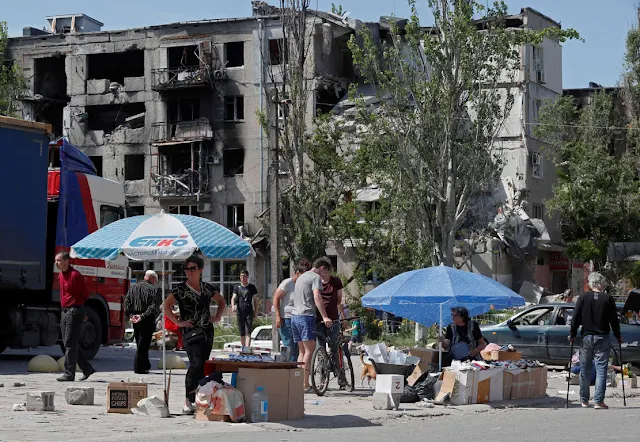Life in Ukraine's post-siege Mariupol: barter markets and Russian TV
On Monday, local residents charged electric devices from genelife-in-ukraines-post-siege-mariupolrators and exchanged food and clothes at impromptu street markets, while at an empty bus station Russian state television blared out from a giant screen brought in by officials.

Lyuba, wearing sunglasses and a hat to protect her from the sun, said she was charging her phone. She had decided not to leave the city, although her apartment had been damaged. "There's no electricity, no water - things are really tough, of course."
A man called Nikolai said he had also come to charge his phone, as there was no electricity available at the train station where he now lives. Neither gave family names.
Some residents could be seen collecting essential products in boxes emblazoned with the pro-Russian 'Z' symbol.
Others had set up their own stalls to sell - or exchange - products, including vegetables and shoes. One woman - who did not give her name - said few products were left after looting plagued the city.
Russia seized full control of Mariupol earlier this month when more than 2,400 Ukrainian fighters who had been holding out surrendered at the besieged Azovstal steelworks.
Ukrainian President Volodymyr Zelenskiy has described Mariupol as "completely destroyed", but Moscow has pledged to rebuild it.
Both sides have accused each other of targeting residential areas and ultimately being responsible for the charred, largely uninhabitable apartment blocks that now make up most of the city.
It is not known how many civilians remain.












Comments
Post a Comment
thanks for your message.